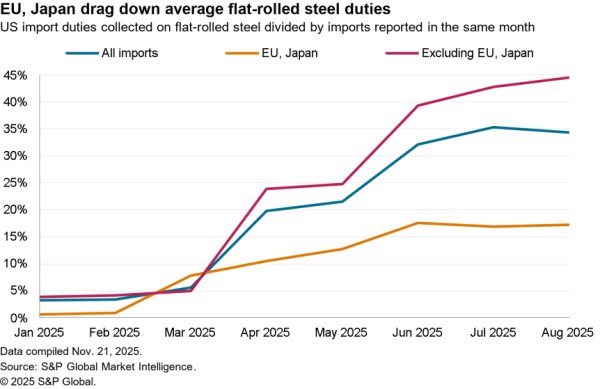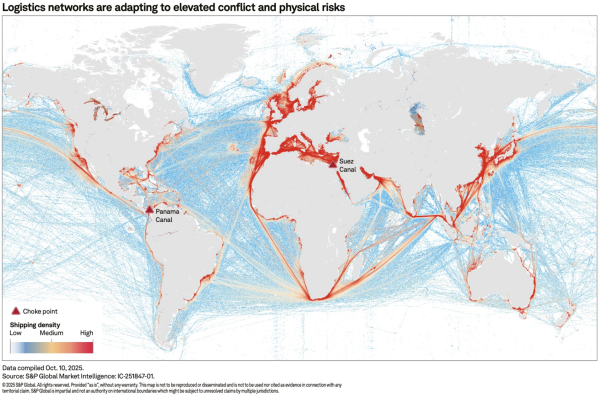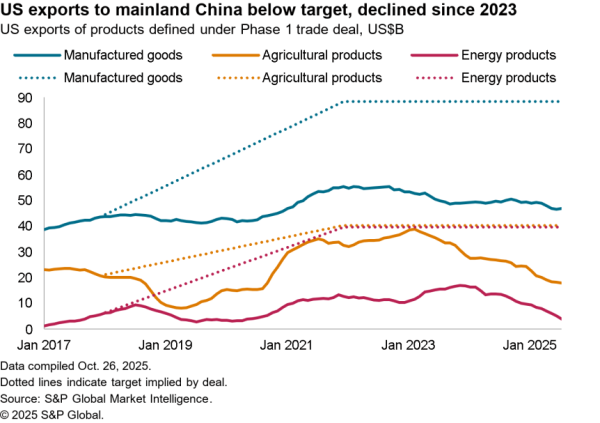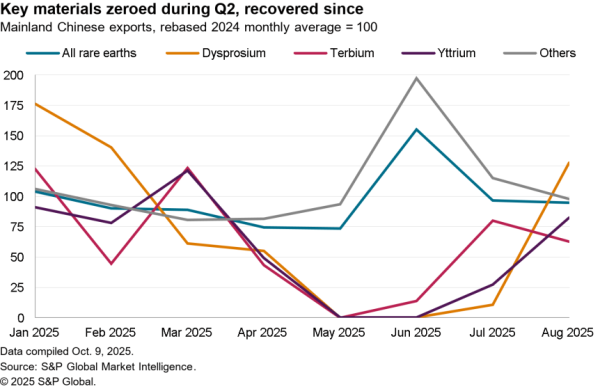Hapag-Lloyd has accelerated the installation of refrigerated container (reefer) tracking in a project originally launched in February, Journal of Commerce reports. At the same time Maersk’s APM Terminals has upgraded its port-side container tracking system to include a watchlist system. Both are attempts to improve visibility in supply chains and are enabled by the increasing use of IoT devices on containers discussed in Panjiva’s research of Oct. 9.
U.S. seaborne imports of reefer freight has proven more resilient than regular freight during the pandemic, which is perhaps unsurprising given food demand has continued unlike consumer consumer discretionary products. Yet, there’s also not been a significant amount of growth with shipments in Q3 with a 2.5% year over year decline, Panjiva’s data shows, following a 0.7% dip in Q2 which reversed three previous quarters of expansion.
Hapag-Lloyd may be accelerating its roll out after falling behind with shipments in Q3 having dropped by 10.0% year over year while those linked to its THE Alliance partner ONE have declined by 24.3% after previous growth. The number one shipper remains Maersk with a 9.5% in Q3 extending its lead to 15.4% of volumes in the past 12 months.

Source: Panjiva
One challenge for Hapag-Lloyd may come from the fragmented nature of supplies in refrigerated shipping with no supplier representing more than 2.1% of its total handling in the past three years. The downturn has been the result of a mixture of apparent customer losses.
Shipments linked to medical supplier Roche dropped by 87.1% year over year in Q2 and by 63.6% in Q3. There’s also been reduced volumes in the food industry including a 50.4% slide in imports linked to Ferrero. The latter may also have cut shipments as a result of reducing waste through its own investments in supply chain technology.
There are still plenty of growth successes though, for example including shipments linked to meat supplier JBS which jumped 95.8% year over year in Q3 after declining for the prior six quarters.

Source: Panjiva




